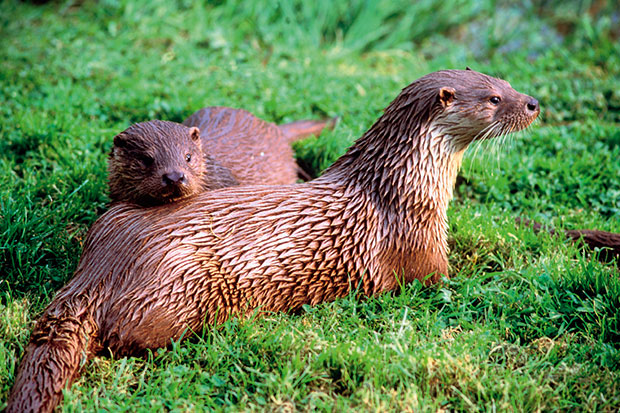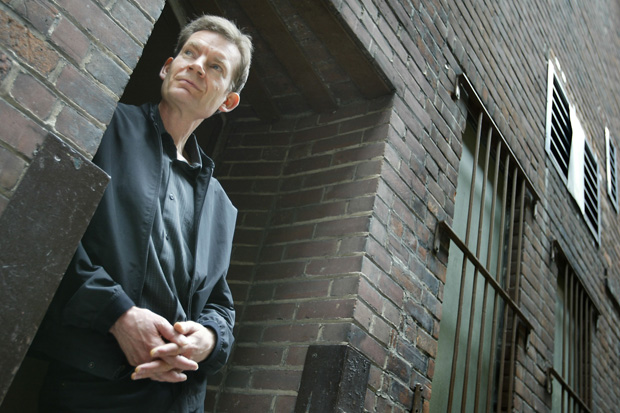Being a Beast is an impassioned and proselytising work of philosophy based on a spectacular approach to nature writing. That genre has given us riches on the language of landscape, the redemptive power of goshawks and the lives of fields, rooks, butterflies et al. We are wealthier for the movement, but in none of many beautiful books will you find a passage like this, from a writer in a wood at dusk thinking about badgers.
It would be pointless to reel off the adjectives and metaphors I used to describe to myself the scent of shepherd’s purse on the pillow or dog’s mercury in the wood. That might say something about me, but nothing about badgers or woods. Do badgers use adjectives? I expect they describe the world to themselves, and so they must. Adjectives are a corollary of fine shades of perception.
Farewell most nature writing:
Anyone who tries to evoke the mood of a natural place is a fraud; it is all — all — in the particular; the detail; the slash, the wrench, the individual panting breath.
Charles Foster, vet, barrister and philosopher, burrows into a Welsh hill to better understand badgers. He swims rivers as an otter, lies in a London yard as a fox, crawls through snow in imitation of a deer, and fails to fly as a swift.
No one will tell you more about badgerhood. I now know how earthworms taste (Picardy varieties musty; Somerset worms of leather and stout), or rather, Foster knows and makes metaphor of them, a step he believes beyond badgers. He is infuriated by metaphorical vision, ‘the main source of inauthenticity’, as any would be who had crawled blindfold to identify the distinct smells of different trees:
For a badger a soaring hornbeam has, on a hot day, the helical shape of the scent vortex that pulls dust up into the canopy and is, on a cool day, a low hump of tart lichen with an indistinct chimney.
This is a superb marriage of lyricism and authenticity. And Foster loves facts. Half of autopsied otters have recently fought others, striking the belly and genitals. Their metabolism is so high that you would have to eat 88 Big Macs daily to match them. He accuses otters of a constitutional anxiety caused by a life of frenetic killing, which, he reckons, precludes the possibility of a self. His method is fact, immersion (night swimming, he hymns nocturnal greys ‘as varied as the rainbow spectrum of noon’) and wild idiosyncratic conclusion. It make exuberant instruction.
Foxes hunt by using sound to fix direction and the earth’s magnetic field to assess distance. Swifts graze the air, taking 5,000 insects a day, selecting stingless bees while travelling at 49 feet per second. Some dogs and Norwegians sense the approach of owners or guests. Norwegians have a word for it, vardoger. Deer are red-green colour blind, but sensitive to ultraviolet: their summer sky ‘must swirl and crash like an angry Turner’. Migration is habit ingrained into the collective unconscious; swifts are guided by ‘an impalpable tide generated by millions of dead swifts’.
Part of the pleasure of Foster’s teaching is his itch for the assumedly placid reader to take issue with his vision. His creed is ‘choose life’. Get up early, run around a field, take a cold bath and read Middlemarch, he implores, rather than have a lie-in, which amounts to choosing death.
Enemies of Fosterism include shareholders and bankers (otters disembowel each other because your profits devastate rivers), office workers (fearful and over-medicated: you ought to be running down kudu) and useless poets. ‘When it comes to swifts, all poetry fails.’ He cries when the swifts return, saying: ‘The world still works.’ He might have said Ted Hughes wrote that. He is great fun, if unsure that you are. Vegetarians, like ruminants, have it coming. ‘It’s less morally culpable to eat a herbivore than a carnivore. Herbivores expect it, carnivores don’t.’
Foster himself is the main subject: manic show-off, wonderful father (he has his children ‘sprainting’ and sniffing their spraints to better understand otterness) and a man inspiringly driven by inquiry. Are we truly autonomous? (If a man can almost become a badger, yes.) Are we alone? (No: ‘Our capacity for vicariousness is infinite.’) Do we inhabit the same world as animals? Yes: Foster’s love for creatures is ‘necessarily reciprocal’. If that seems gnomic, his experience of returning from badgerdom is concrete:
The town blared, belched, leered and cackled. It fed itself by oriental airfreight, and everyone was the same colour. I felt sick from shock and boredom and the heaving floors of deafening smell… To thrive as a human being I needed to be more of a badger.
More brilliant than bonkers, that. This is a joyfully rambunctious and quietly important book.
Got something to add? Join the discussion and comment below.
Get 10 issues for just $10
Subscribe to The Spectator Australia today for the next 10 magazine issues, plus full online access, for just $10.
Available from the Spectator Bookshop, £12.99. Tel: 08430 600033
You might disagree with half of it, but you’ll enjoy reading all of it. Try your first month for free, then just $2 a week for the remainder of your first year.














Comments
Don't miss out
Join the conversation with other Spectator Australia readers. Subscribe to leave a comment.
SUBSCRIBEAlready a subscriber? Log in